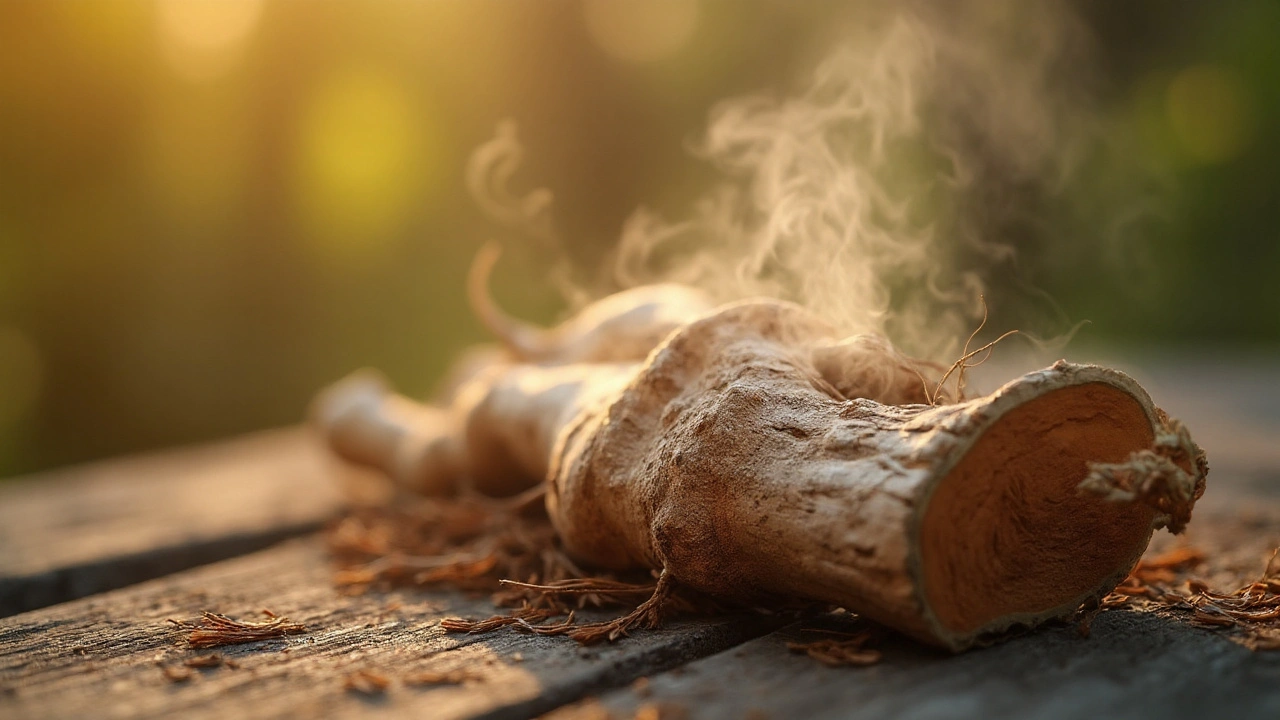Sep, 23 2025, 7 Comments
Senega: The Herbal Secret to Balanced Health & Respiratory Wellness
Discover how Senega, a traditional herbal root, can boost respiratory health, support immunity, and act as an adaptogen for a balanced lifestyle.
Read MoreSenega comes from the root of the Polygala senega plant, a native North American herb traditionally used by Indigenous peoples to ease coughs and clear the lungs. Today, the dried root is made into powders, capsules, and teas that claim to support healthy breathing, reduce congestion, and calm inflammation. If you’ve seen it on a supplement shelf, you’re probably wondering whether the hype matches reality.
The main active compounds in Senega are saponins, especially senegin. These molecules act like natural surfactants, loosening mucus so it can be expelled more easily. That’s why many users report quicker relief from chest congestion during a cold or seasonal allergies. In addition, Senega has mild anti‑inflammatory properties that may soothe irritated airways, making it a gentle option for people who can’t tolerate strong bronchodilators.
Beyond the lungs, some small studies suggest Senega might have a modest effect on the nervous system, helping to calm cough reflexes and even reducing the urge to cough at night. It’s not a substitute for prescription inhalers, but it can be a handy adjunct when symptoms are mild or when you’re looking for a natural boost.
Typical adult dosages range from 500 mg to 1 g of powdered root per day, divided into two servings. Capsules usually contain about 250 mg each, so two to four capsules daily is common. If you’re using a tea, steep 1–2 grams of the root in hot water for 10‑15 minutes and drink up to three cups a day.
Start low, especially if you have a sensitive stomach. Some people experience mild nausea or a bitter after‑taste, which often fades as the body adjusts. Avoid Senega if you’re pregnant, nursing, or have a known allergy to the plant. It can also interact with blood‑thinning medications, so check with a healthcare provider before combining them.
When picking a Senega supplement, look for a brand that provides a Certificate of Analysis (COA) confirming the saponin content and absence of contaminants. Pure, single‑ingredient products are preferable to blends that may contain fillers or unknown herbs. Transparent labeling, third‑party testing, and good customer reviews are solid indicators of quality.
Store Senega in a cool, dry place away from direct sunlight. Proper storage keeps the saponins stable and preserves the bitter flavor that many people use as a cue that the product is still potent.
In practice, Senega works best as part of a broader breathing‑support routine: stay hydrated, use a humidifier during dry months, and keep allergens under control. Pairing the supplement with these habits can amplify the relief you feel.
To sum up, Senega supplement offers a natural way to loosen mucus, calm coughs, and support airway health. Stick to recommended doses, watch for any stomach upset, and choose a reputable brand. With the right approach, Senega can be a useful tool in your everyday wellness toolbox.

Sep, 23 2025, 7 Comments
Discover how Senega, a traditional herbal root, can boost respiratory health, support immunity, and act as an adaptogen for a balanced lifestyle.
Read More